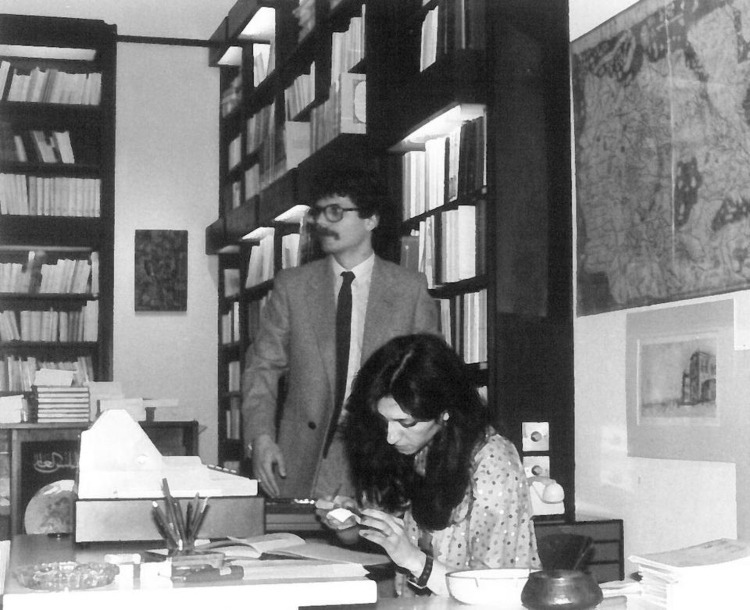The End Of A Cultural Legacy: Al Saqi Books Officially Closes Its Doors
The oldest Arabic bookstore in all of London has ended its chapter and closed its doors after acting as the beating hub of Arab culture and language in the UK for more than four decades. Al Saqi Books is unlike any other bookstore as its story and legacy carry significant weight within the hearts of London’s Arab community and the diaspora at large.
How It All Started
Back in 1978, following their escape from the tumultuous civil war in Lebanon and their arrival in London, Andre Gaspard and author Mai Ghoussoub saw an untapped opportunity.
“Many Arabs were coming to London at the end of the ’70s. It was a big boom for the oil industry and the Arab world. They were coming in masses, and during the civil war in Lebanon, they stopped going to Beirut” Gospard said to NPR’s Scott Simon. “So we had to recreate almost a cultural center, you know, to replicate what we used to have in Lebanon – freedom of expression, freedom of reading, all the culture. And that’s why the bookshop started.”

Having Al Saqi Books open at the time of the Lebanese Civil war, a time when censorship and propaganda were at an all-time high, the bookstore offered a chance to give people access to books by Arab authors with opposing or controversial views. It offered Arabs visiting London access to books that they themselves would not find in their own countries. It grew further as a center that promoted freedom of expression when it launched its very own publishing arm in 1983 which provided a platform for more authors and voices to share their perspectives.
Since then, it has cemented itself as a promoter of Arab identity and culture within the UK and across the globe. Nestled along Notting Hill, the bookshop was and continued to be home to an eclectic bunch of customers and daily dwellers from language lovers and people interested in the Middle East to journalists, university students, and even celebrities.
The Collective Loss
At the time when it was announced that the shop will close its doors, some of its oldest customers expressed their sorrow over its closure and why it’s important to them.
“Here I find more books written by people from the Middle East and the Global South in general because there’s obviously more openness with the press here. So this is also like what makes this bookstore special, most of the books I can’t even find back home,” explained Farah Otzobeer, an LSE student.
Even longtime employees of the store felt the weight of it reaching the end of its time.
“It’s a tragedy really, we’ve had lots of customers coming into the shop who’ve been buying books here since the 70s, I guess everyone thought that our Al Saqi would just always be here,” Joseph said. “It’s such a sort of landmark in this area. So everyone’s been devastated and shocked really.”
The End Of An Era
Today, we say goodbye to this special Arab landmark that closed its doors due to various unfortunate circumstances including the economic impact of the pandemic, rising costs, and inflation. It’s among many small businesses that saw the end of their era, getting replaced with chain stores and online shopping. The entire phenomenon ushers in a new landscape, one in which people are less connected to each other and where culture and authenticity lose their ground and become dominated by fast-producing products and modernized stores.
